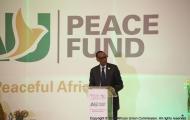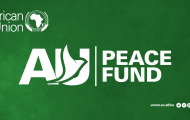Department Resources
January 01, 2025
Supply Chain Management Division Operations Support Services Directorate
Addis Ababa, Ethiopia
January 01, 2024
Supply Chain Management Division Operations Support Services Directorate
January 06, 2023
January 31, 2019
September 19, 2020
The African Union Commission (AUC) envisions “an integrated continent that is politically united based on the ideals of Pan Africanism an
June 24, 2020
Highlights of the cooperation with the GIZ-project “Support to the African Union on Migration and Displacement”
June 24, 2020
Violent extremism is a global issue.
Opening Remarks by H.E. Taye Atske-Selassie, President of Ethiopia at the CAADP Extraordinary Summit
January 11, 2025
January 11, 2025
January 11, 2025
February 10, 2022
Agenda 2063 is Africa’s development blueprint to achieve inclusive and sustainable socio-economic development over a 50-year period.
January 01, 2025
Supply Chain Management Division Operations Support Services Directorate
Addis Ababa, Ethiopia
December 30, 2024
December 30, 2024






